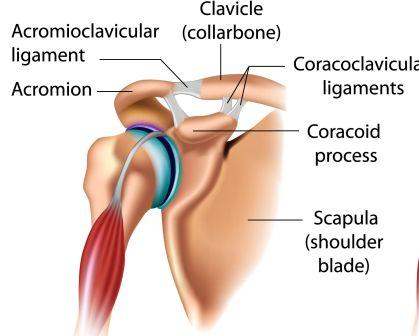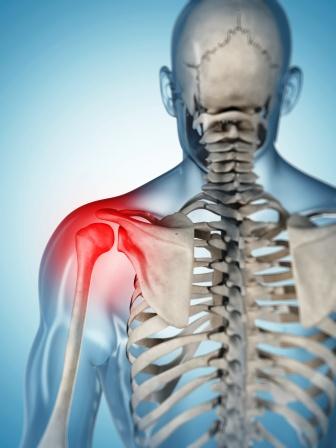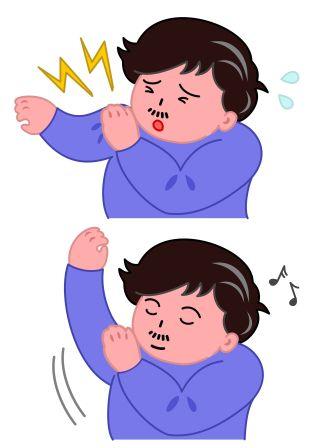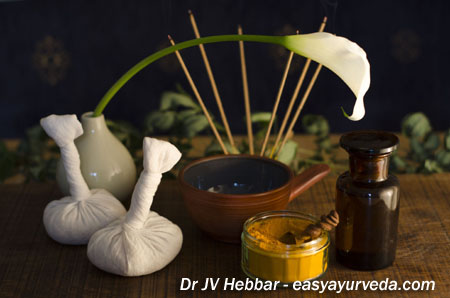Frozen Shoulder: Ayurveda Treatment, Medicines, Exercises
In a frozen shoulder the shoulder girdle will be stiff because of which free movement of the joint becomes impossible. In medical terms, it is called adhesive capsulitis of shoulder joint. It may happen after an injury or due to overuse or from a disease such as diabetes or a stroke.
The tissues around the joint stiffen, scar tissue forms, and shoulder movements become difficult and painful. The condition usually comes on slowly, and then goes away slowly over the course of a year or more.
The incidence of such a pain even though not so age specific, younger age group is prone for this complaint. But in few individuals it is momentary and lasts only for few months.
In Ayurveda, this condition is correlated to Apabahuka.

Table of Contents
Ayurvedic explanation
Frozen shoulder in Ayurveda:
Apabahuka is a disease that usually affects the Amsa sandhi (shoulder joint).It is produced by the Vata dosha. Even though the term Apabahuka is not mentioned in the Nanatmaja Vata vyadhi (Diseases that arise solely due to Vata Dosha), Acharya Sushruta and others have considered Apabahuka as a Vataja Vikara. Amsa shosha (wasting of the shoulder) can be considered as the preliminary stage of the disease. The stiffness to the joints is contributed by Kapha Dosha.
Because of involvement of Kapha Dosha, in many patients, cold exposure and at night time, the stiffness worsens.

Causes
Frozen shoulder causes:
The bones, ligaments and tendons of shoulder joint are covered in a capsule of connective tissue. It can be imagined as ball (capsule), containing the shoulder joint within it. Frozen shoulder occurs when this capsule thickens and tightens around the shoulder joint, restricting its movement.

The thickening and tightening of shoulder joint capsule can be due to following reasons:
1. after effect of injury (usually after certain period of injury – chronic)
2. Overuse of the joints (in porters, drivers, weight lifters etc.)
3. Diseases like diabetes, stroke etc.
4. Secondary to degenerative disorders, as in chronic rheumatoid arthritis, cervical spondylosis (neck disc displacement) etc
Due to the above said factors, the tissues around the shoulder joint are stiffened. In turn, the scar tissue is developed around the structure of the joints. This causes the restriction of the movements to the shoulder joint. On moving pain is felt. Thus the patient feels difficulty.
Causes for frozen shoulder as per Ayurveda:
(i) External causes —
Injury to the vital parts of the body (marma) or the region surrounding shoulder joint
Excess exposure to wind, a.c, sleeping with wrong posture
(ii) Internal causes —
Vata aggravating diet and activities. Excess of pungent, bitter and astringent tasting foods.
Frozen shoulder stages
Stages of Frozen shoulder:
It typically develops slowly, and in 3 stages. Each stage can last for months.
• Freezing stage: Shoulder movements cause pain. The ability to move shoulder reduces.
• Frozen stage. Pain may decrease but stiffness increases
• Thawing stage. The range of motion in your shoulder begins to improve.
Risk factors
1. 40 year old and older, particularly women.
2. People with prolonged immobility or reduced mobility due to Rotator cuff injury, fractured arm, stroke, after a surgery etc.
3. People who have certain diseases appear more likely to develop frozen shoulder. Diseases that might increase risk include Diabetes, hyper active thyroid, under-active thyroid, heart disorders, TB etc.
Line of treatment
Line of treatment of Frozen shoulder:
1. Oleation (Snehana) – to the shoulder girdle from back of the neck to the tip of the corresponding arm is usually beneficial.
2. Swedana (Sudation) – After the oleation, mild sudation should be carried in the oleated area; this stimulates the nerve endings and improves blood circulation too. Thus the pain and stiffness are relieved.
3. Nasya (oleagenous errhines) does have significant effect in this condition as it stimulates the nerve endings.
4. Basti treatment (rectal enema with oils / herbal decoctions) might be required to bring about Vata Balance, quickly.

Ayurvedic procedures
External Ayurvedic procedures useful in Frozen shoulder:
The below therapies help to
Relieve pain and stiffness of joints
Rejuvenates the degenerated connective tissue.
Abhyanga – oil massage. The medicated oils are listed below. Usually oils are slightly heated over a water bath, before massage. Usually steam therapy is given after massage, especially to relieve stiffness.
Pizhichil – streaming of hot oil, along with simultaneous massage.
Elakizhi – herbal poultice, are prepared with Vata balancing herbs such as castor leaves, Nirgundi (Vitex negundo), Dashamoola, Devadaru etc, tied in a pack by cloth. This is dipped in hot medicated oil and this is applied over the shoulder joints.
Njavarakizhi – Especially useful in degenerative conditions. First Abhyanga (oil massage) is done, and then Rice pack, dipped in certain kashayams), made with cloth, is applied over the affected area.
Podi Kizhi – Herbal powders taken in linen bags, dipped in oil and applied over shoulder joint
Pichu – Cloth / cotton swabs soaked in hot medicated oil applied to the affected joint. Gives long time exposure of oil to the joints.
Either a single or a combination of above therapies is used in Ayurvedic treatment of frozen shoulder.
Ayurvedic oils
Herbal oils for for frozen shoulder:
(Click on the oil name to know more about the oil)
Vishagarbha Taila – used in Ayurvedic treatment of paralysis, stiffness of hands and legs, neck stiffness etc.
Mahanarayana Taila – a very famous herbal oil used in Ayurvedic treatment of arthritis, paralysis, and eye diseases. This oil is used for external application, orally and for many Ayurvedic therapies.
Dhanwantara Taila – used in the treatment of Vata diseases such as Rheumatoid and osteo arthritis, spondylosis, headache and neuro-muscular conditions.
Kottamchukkadi Taila – Ayurvedic oil used in the treatment of Vataja disorders causing neuro muscular pains, sciatica, spondylosis etc. This oil is formulated based on Kerala Ayurveda practice.
Bala Taila – Nourishing in nature. Useful to reverse degeneration.
Prasaranyadi Taila – Especially useful to relieve stiffness.
Ayurvedic medicines
Oral Ayurvedic medicines for frozen shoulder:
Click on the medicine names to know more)
Yogaraja Gulgulu – Useful in bringing down pain and to improve joint flexibiltiy
Rasnaerandadi Kashaya – Useful when there is joint pain with stiffness
Shilajatu Vati – Useful when there is tissue degeneration
Prasaranyadi Kashaya and Sahacharadi Kashaya – Useful especially when there is stiffness.
Maharasnadi Kashaya – Relieves pain and inflammation
Dashamoolarishta – to relieve inflammation quickly
Vatavidhwamsa Rasa – used in the treatment of neuritis, colic pain, etc
Mahavatavidhwamsa Rasa – used in the treatment of Vata disorders, abdominal pain etc.
Vishamushti Vati
Yogas from Sahasra yoga text book
- Maharasnadi kwatha
- Parinatakeri kshiradi Taila
- Karpasasthyadi Taila
How long treatments and medicines are required for complete cure?
External therapies might be required for 7 – 21 days.
Oral medicines might be required for 2 months with gradual decrease in dosage based on progress.
Recovery can be accelerated with physiotherapy and Yoga. (see below).
Wholesome diet and habits
Wholesome diet and habits in frozen shoulder:
1. Warm and unctuous food
2. Proper and regular exercise
3. Warm water bath loosens the stiffness.
Include anti inflammatory spices such as turmeric and black pepper in diet.
Unwholesome diet and habits
Unwholesome diets and habits in frozen shoulder:
1. Cold water bath
2. Excess use of A/C rooms
3. Excess of oily and fried food
4. Heavy exercise
5. Improper laying, sitting and sleeping position etc.
Frozen shoulder is not a life threatening illness. But the condition will be miserable as his routines are disturbed. Also it causes difficulty to do his professional works as in each work role of hand and shoulder is certainly needed. So immediate attention and regular medication and constant exercises play significant role in this disease.
Physiotherapy
Physiotherapy for frozen shoulder is very useful. There are certain exercises that the physiotherapist will make you to do. But there are a few which you can do at home to improve shoulder joint flexibility.
Always start with the easiest one and stop when mild pain starts to appear.
A few exercises: Arm rotation exercises – clockwise and anti clockwise – 3 – 10 rounds.
While sitting straight, extend your arms forward, straight. Hold them straight for 5 seconds and then relax.
While sitting straight, extend your arms laterally, straight. Hold them straight for 5 seconds and then relax.
Yoga
Yoga for frozen shoulder:
Surya Namaskara
Adhomukha Shwanasana
Gomukhasana
Pashasana
Trikonasana
Ushtrasana
What you can do at home to prevent frozen shoulders?
Do regular rotatory arm exercises.
Avoid continuous computer work, move often.
Oil massage with steam or hot water bath at least once a week.
Regular exercises and active lifestyle.
Marma Therapy
Stimulation of of below Marmas is done in the chronological order for the treatment of frozen shoulder.
Kshipra Marma,
Kurpara marma
Ani Marma and
Urvi Marma
Amsha Marma and
Krikatika Marma










24 comments
suman
Hello sir.useful information regarding. Frozen shoulder and stoulya hara choorna.plz give best treatment for sweta pradara.
Seetha lakshmi
Very informative
Avinash
I want to request you again to write a similar article on fibromyalgia.
Dr J V Hebbar MD(Ayu)Author
I will write about it soon.
abid
very help-ful informations,thankyou
dr mazeena
blood letting therapy or cupping therapy is good r not
asha
very informative keep up the good work. kindly guide as to how can numbness and burning sensation of the hand and leg be reduced after a stroke. Thank u
Dr J V Hebbar MD(Ayu)Author
Nerivne tonics like Balarishta, ksheerabala capsule etc are useful. Please consult an Ayurveda doctor directly.
siddhartha
thanks alot for this usefull info sir. i am siddhartha,31 yrs old.10 days ago i sttarted having little stiffness in neck and shoulder joints and elbow joints too.and very little pain also.i read sumwhere dat cinnamon and honey can do wodners for joints,is it ok if i use cinnamon honey for sumtime or should i go with full fledge medication and see some doctor…
Dr J V Hebbar MD(Ayu)Author
Hi, it will be good if you go for full treatment course by direct consultation with a doctor.
Adoni Suguresh
Dear Doctor,
It is useful and basic knowledge for the patient. Remedy for this, whether you advise of Physiotherapy or Ayurveda treatment Or by any operation.
Dr J V Hebbar MD(Ayu)Author
Initially a combination of physiotherapy and Ayurvedic medicines and massage oils are very useful.
Surgery can be kept as the last option.
Dr J V Hebbar MD(Ayu)Author
Hi, please consult an Ayurveda center with massage / treatment facilities.
T.R. viswanathan
pl inform near by treatment centre for frozen shoulder propblem
Dr J V Hebbar MD(Ayu)Author
Which place?
Ruchika
Sir will Ksheerbala oil Nasya work in case of decreased mobility of shoulder joint.
Ruchika
Sir will Ksheerbala oil Nasya help in decreased mobility of shoulder
James Ahmed
Sir, My age is 55. I have suffered from severe shoulder pain in my left hand from past 2 months. I consulted 3 ortho doctors and they advised me I have suffered from frozen shoulder and they suggested me to take physiotherapy treatment in which have Exercises and wax bath, there is no improvement. Later I have consulted Ayurvedic doctor and he gave me 3 types of tablets, for one week, this also not help to reduce my pain. Please advise your thoughts.
M.Dayakar Rao
Good Information sir
Dr J V Hebbar MD(Ayu)Author
Massage helps to relieve pain and avoid stiffness. It helps to keep away from NSAID – allopathic pain killers.
esakky
Dear Sir,
I have some muscle swelling like stiffness in both the lower part of the neck where shoulders join, along with some dizziness. When i take some physiotherapy treatment this swelling goes in a couple of days.
But after some time say after a month, again the same stiffness appears with dizziness.
Can you please suggest any exercises or treatment to prevent the stiffness formation
Thanks
Esakky
Harosh
I have pain in both shoulders and in the centre of the neck from 2010.The pain has come up to the fingers . I also have pain in my right thigh due to that I can’t fold my legs and sit for even 5mts also.
sarva ramana
where can i buy the oils mentioned (in hyderabad ) ?
Dr J V Hebbar MD(Ayu)Author
they are available in online websites like eayur, 1mg, amazon